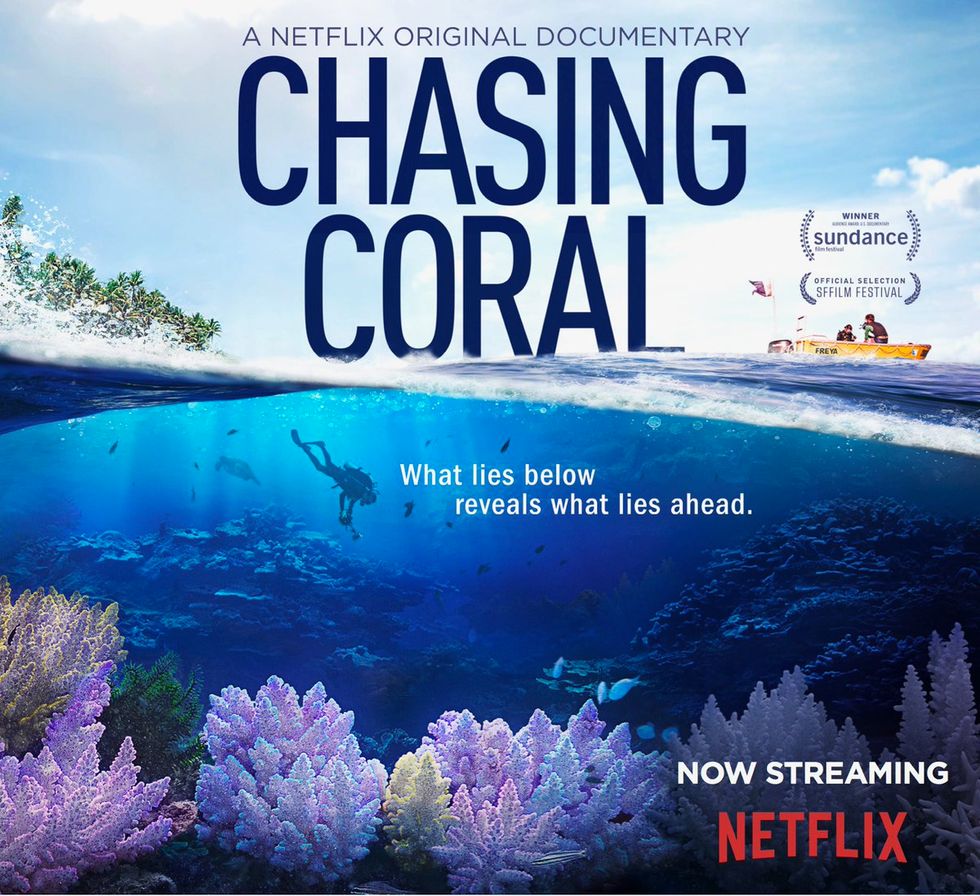In keeping with my most recent theme of scuba diving articles, I felt the need to share with you an important topic to all of us. I recently watched a documentary on Netflix called Chasing Corals (I highly recommend it) directed by Jeff Orlowski. This article will look to review the film as well as inform you on the dire situation currently effecting the world.
Coral reefs are the nursery for all life in the seas, an astounding environment that supports us. However, with carbon discharges from emissions warming the oceans, a circumstance commonly known as "coral bleaching"- an indication of mass coral decay has been increasing quickly all over the world, and people in general has no clue about the scale or ramifications of the disaster that's quietly seething below. Chasing Coral takes advantage of the inner will of a marketing man, professed divers, a self-titled "coral nerd," and marine biologists to record the devastating bleaching as it happens over the course of a few months. Sadly, the entire process of watching is painful to see and anything but simple for the team. They deal with both technical issues as well as dealing with Mother Nature herself. I can safely say that after watching it, they brilliantly recorded the proper suspense and emotion needed to see what is wrong.
Now as a diver, I have been lucky enough to have been near the majestic beauty of coral reefs. If you want to see them for yourselves, I highly suggest looking at my former article, 7 reasons to learn to scuba dive found here. These beautiful and diverse ecosystems are usually fairly deep in the ocean. They house approximately a third of all marine fish species and yet cover only 0.2% of our world's ocean.
So this brings me to the whale in the room (pun intended) of how we can play our part in helping end this genocide. The primary culprit comes from dealing with all the trash thrown or dumped into the ocean while most times it is misrepresented as pollution (although, there are some areas of the world where that is true). We need to do a better job policing ourselves and others making sure this waste doesn't enter the water or help clean it up when we can. There is absolutely no excuse for intentionally polluting the environment, especially a water supply. A second option could be to help environmentalists create marine parks which are reserves that preserve marine life because they are no longer safely able to survive safely in their environment. Lastly, one of the major things a person could do to help is to educate ourselves regarding the situation and spreading the word about it. There is so much information that can be found online from your device. You can watch the Chasing Coral documentary, see other videos or read up on the latest news. By spreading the word, we may be able to save up to the 75% of the world's coral currently in danger.
As the world continues to warm and the corals slowly decay, it is immensely difficult to determine how much conservation would be needed. The only real hope is that some coral can healthfully survive just long enough for us to come in and save it. I truly hope that one day you get to see them up close and personal. Until then, we must not give up the fight to save them and enjoy them while we still do have them.

















